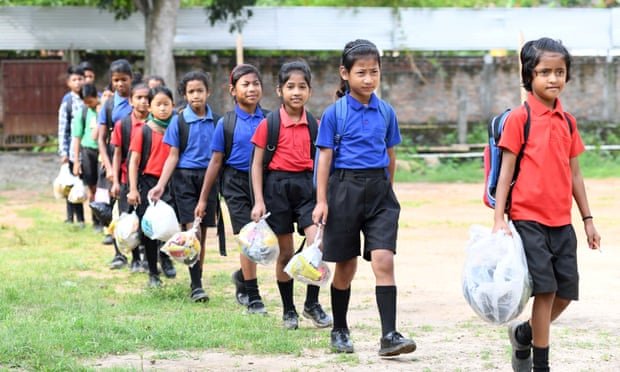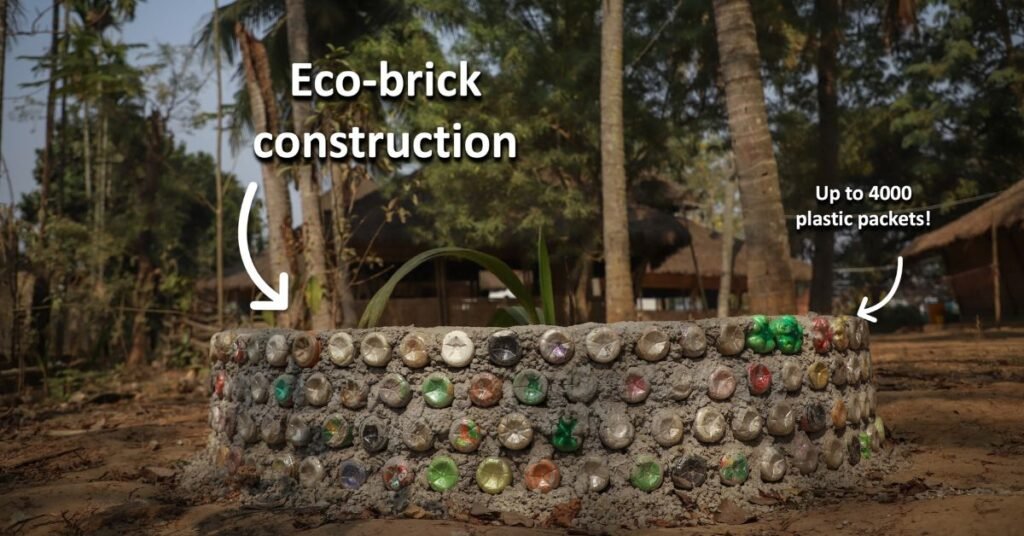
At the center of Pamohi, a poor locality on the outskirts of Guwahati, a few children are changing lives—beginning with theirs. At Akshar Foundation School, underprivileged students are financing their education not in cash, but in plastic rubbish.
The school, which was co-founded in 2016 by Parmita Sarma and Mazin Mukhtar, has come up with a revolutionary model in which children gather at least 25 pieces of plastic trash every week to help pay for their education. As a reward, they are provided with quality education, vocational skills, and a chance to escape poverty.
We wished to discover a solution for both the waste crisis and the education deficit at the same time,” stated Parmita Sarma, addressing local media.
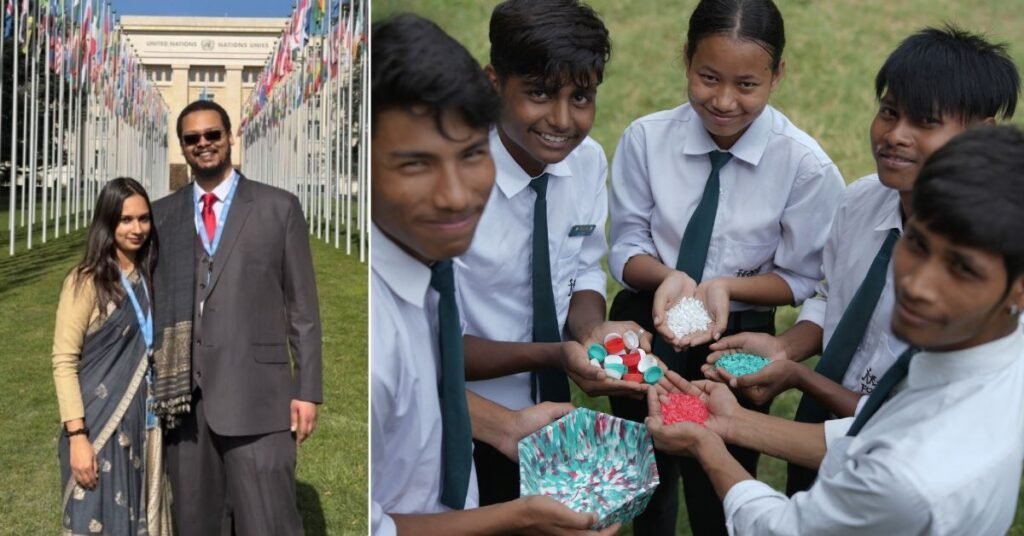
Plastic as Currency, Education as Reward
The school has a distinct curriculum that combines academic courses with vocational and environmental studies. Senior students acquire skills such as carpentry, tailoring, solar panel installation, and animal husbandry. They also assist younger students as peer tutors, for which they receive incentives in a school-run “toy currency” scheme. This set-up promotes leadership, teamwork, and purpose.
More significantly, it protects children from unsafe stone quarry labor, something that many families in the area face.
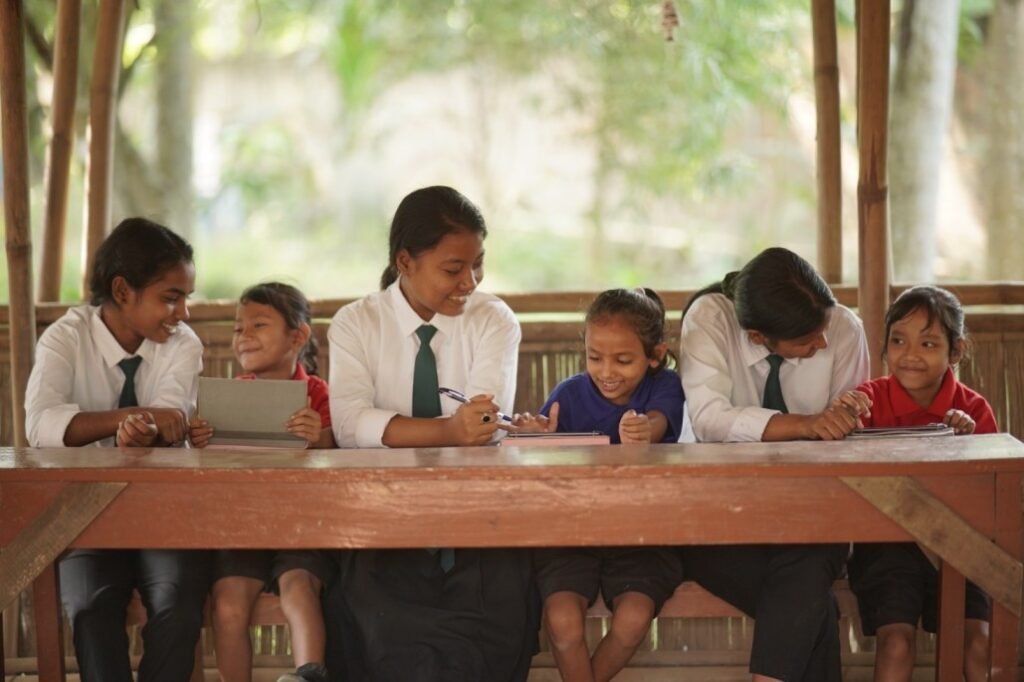
Environmental and Social Impact
The plastic is recycled to create eco-bricks, which are utilized in constructing school facilities or creating items for everyday use such as planters, benches, and ornaments.
By recycling more than 10,000 pieces of plastic trash monthly, the school keeps the open burning of plastic in slum environments to a minimum, one of the biggest causes of air pollution.
The project has resulted in cleaner environments and better health awareness for families.
Parents now encourage their children’s activities, and many of them see the tangible impact of the program. “We used to burn plastic without realizing how dangerous it was. Now, our children take it to school, and the environment around our house is fresher,” a mother explained.
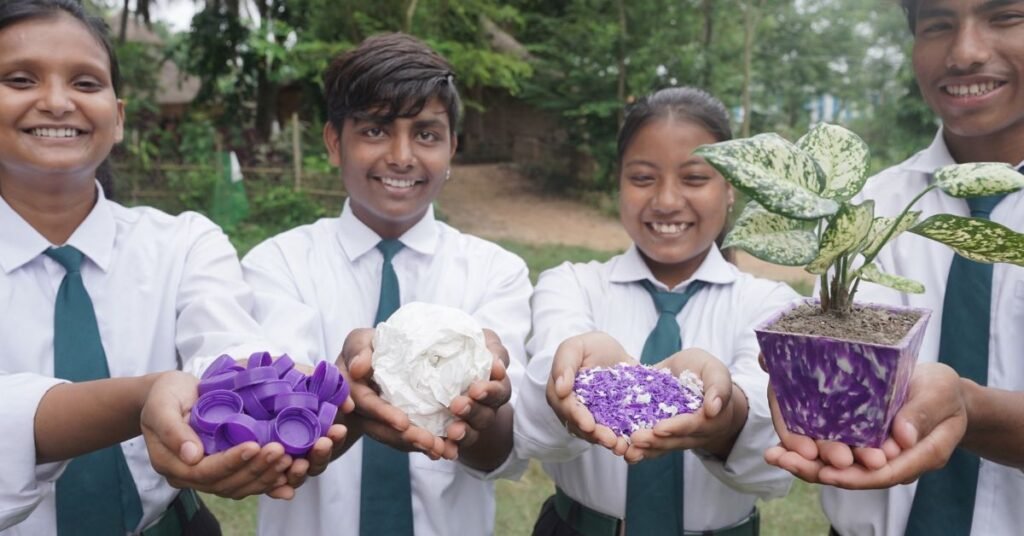
From One School to a City-Wide Movement
Emboldened by the success of Akshar School, the Guwahati Municipal Corporation joined hands with 14 other schools in the city earlier this year as part of the ‘Swachh School, Swachh Sheher’ initiative. Together, the schools have already retrieved more than 8 tonnes of plastic waste to date, while promoting green practices and enhancing student attendance.
In 2025, the Akshar Foundation signed MoUs with the Assam government to roll out its model in 100 government schools. Negotiations are also on to take this idea to the states of Madhya Pradesh, Uttarakhand, and Maharashtra.
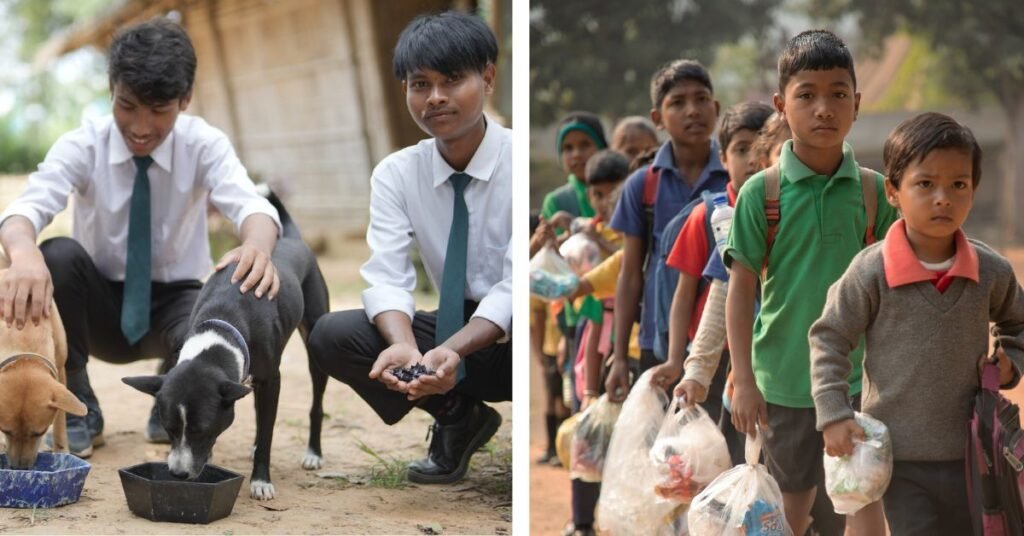
Bricks of Dreams
With no dropouts and increasing countrywide interest, the Akshar model offers a template for sustainable, community-based education. What started with some kids gathering wrappers and bottles is today a beacon of circular economy in action—where waste powers education and education powers the future.
As these kids keep arriving with plastic each week, they’re not only creating eco-bricks. They’re constructing dreams, dignity, and a cleaner, smarter future.
